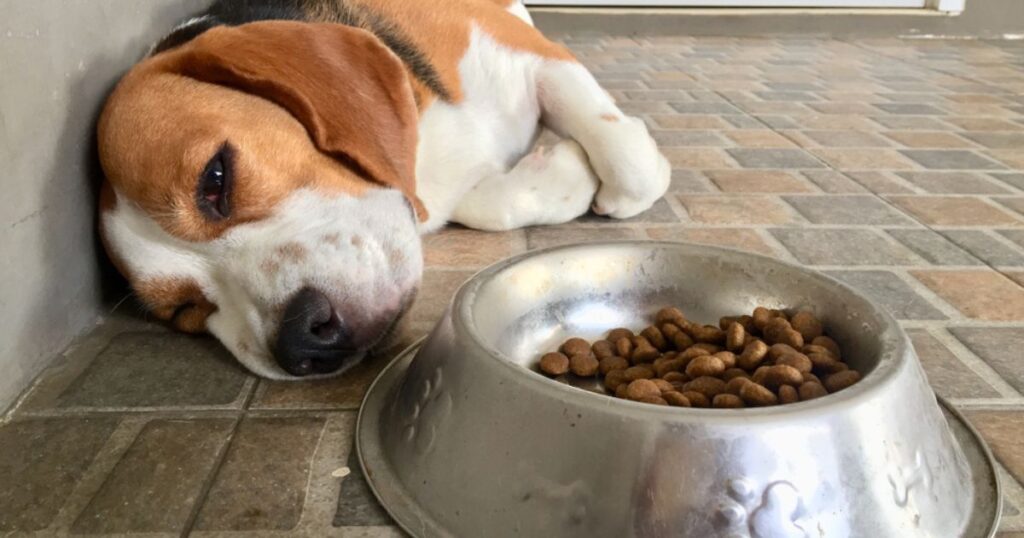- Pumpkin Team
- Jul 2
- 6 min read
Key Points
Small amounts of Pepto Bismol may not harm your dog, but it’s not an ideal solution.
Do not give your dog Pepto Bismol unless directed by a veterinarian.
There are safer, more effective ways to treat an upset stomach in dogs, such as bland diets or veterinarian-recommended medications.
If your pet is experiencing an upset stomach or diarrhea, you may be wondering if you can give them Pepto Bismol. While Pepto Bismol is a popular over-the-counter medication for humans, administering it to your dog isn’t so straightforward. Here’s what you need to know to keep your pup healthy and safe.
Is Pepto Bismol safe for dogs?
The short answer? It depends, and it’s not recommended as a go-to solution. Pepto Bismol, also known as bismuth subsalicylate, can help alleviate mild upset stomachs or diarrhea in dogs, but it also carries risks. The active ingredient, bismuth subsalicylate, works by coating the stomach lining and reducing inflammation. It’s similar to aspirin, which can sometimes be harmful to dogs and cause gastric bleeding.
Pepto Bismol may not be safe or effective for all dogs, especially those with certain breeds, health conditions, or underlying risk factors. It should not be used in dogs with bleeding disorders, pregnant dogs, or those currently taking NSAIDs, as it can increase the risk of serious complications such as gastrointestinal bleeding or adverse drug interactions.

While veterinarians occasionally recommend small, controlled doses of Pepto Bismol for certain cases –– medicating your dog without direction from a veterinarian can lead to complications such as:
Gastrointestinal irritation
Delayed access to proper treatment
Bottom line, before you reach for Pepto for your dog, talk to your vet. It’s always best to consult a licensed veterinary professional before giving your dog any human medication.
Ways to treat an upset stomach in a dog
If your dog occasionally has an upset stomach, it’s not likely something to panic over; it can be a simple case of too many treats from the day before working through their digestive system.
Instead of reaching for human medications, consider these safer and veterinarian-approved methods to help your dog recover from diarrhea or an upset stomach:
1. Feed a bland diet
A bland diet is a gentle way to soothe a dog’s upset stomach and aid in their recovery. Boiled chicken and plain white rice are staples of this approach, as they are easy to digest and provide necessary nutrients without irritating the digestive system further.
Adding plain, unsweetened pumpkin to your dog’s diet can also help firm up stools due to its high fiber content, which regulates digestion and promotes gut health. These simple, veterinarian-recommended ingredients can work together to alleviate diarrhea and discomfort, ensuring your canine companion gets the nourishment they need while their stomach settles.

2. Ensure plenty of hydration
Proper hydration is crucial when your dog is dealing with diarrhea or vomiting, as it helps prevent dehydration caused by diarrhea or vomiting. Water plays a vital role in maintaining essential bodily functions, including digestion and nutrient absorption.
Making sure your dog has access to fresh, clean water at all times can aid in flushing out toxins and restoring balance to their system.
If your dog is reluctant to drink water, try offering ice cubes or a small amount of low-sodium chicken broth to encourage hydration. Always monitor their water intake and consult your vet if dehydration persists or other symptoms worsen.
3. Try veterinarian-recommended probiotics
Probiotics are beneficial bacteria that support your dog's digestive health by balancing gut flora and improving overall digestion. They can help alleviate upset stomachs, reduce diarrhea, and minimize issues caused by antibiotics or dietary changes.
By strengthening the gut microbiome, probiotics enhance nutrient absorption and bolster your dog's immune system. Vet-recommended probiotics are formulated specifically for pets, ensuring they are safe and effective. Adding these supplements to your pup’s routine can promote a healthy gut and prevent recurring digestive problems.
4. Fast if needed
Fasting can help a dog with an upset stomach by giving their digestive system time to rest and recover. Typically, fasting for 12-24 hours is recommended, but always provide access to fresh water to prevent dehydration. That said, not all dogs should undergo fasting.
Puppies, small breeds, underweight dogs, and those with pre-existing health conditions like diabetes should not fast, as it can be harmful to their health. Consult your veterinarian before fasting your dog to ensure it’s the right approach for their specific needs.
When to call your veterinarian

While most cases of dog diarrhea or stomach upset don’t require emergency care, there are specific scenarios where a vet’s intervention is crucial. Contact your vet if your dog:
Displays diarrhea lasting more than 24-48 hours.
Shows additional symptoms such as vomiting, lethargy, fever, or loss of appetite.
Has blood in their stool or black stools.
Eats something that is toxic to dogs (do not try to make them throw up by yourself).
Shows symptoms of being dehydrated.
Is a puppy, senior dog, or has a pre-existing health condition.
Prompt treatment can prevent minor digestive issues from developing into serious medical concerns.
How to avoid upset stomachs in dogs
Preventing upset stomachs in dogs often starts with mindful care and attention to their diet and environment. Here are some practical tips to help minimize the risk to your four-legged family member:
Provide a consistent diet: Sudden changes in diet can upset your dog's stomach. If you need to switch their food, introduce the new diet gradually over 7-10 days to allow their digestive system to adjust.
Avoid table scraps and unsafe foods: Many human foods, such as chocolate, onions, garlic, and fatty leftovers, can be harmful or toxic to dogs. Stick to foods specifically designed for canine nutrition.
Ensure proper portion sizes: Overfeeding can lead to discomfort and digestive issues. Follow feeding guidelines provided by your veterinarian or the pet food label based on your dog’s age, weight, and activity level.
Prevent access to garbage and toxins: Dogs are naturally curious, but eating spoiled food or household items can lead to serious stomach problems. Keep trash bins secure and store chemicals, medications, or potentially harmful substances out of reach.
Regular deworming and parasite control: Parasites such as worms can cause upset stomachs. Ensure your dog is on a preventative care regimen for parasites as recommended by your vet.
Limit stress and anxiety: Just like humans, dogs can experience digestive issues due to stress. Maintain a calm and stable environment for your pet, and introduce changes gradually to reduce anxiety.
By taking these precautions, you can help keep your dog's digestive system healthy and avoid unnecessary discomfort or vet visits. A high-quality, balanced diet coupled with proper care is key to ensuring your pet stays happy and healthy.
Upset stomachs happen, so be prepared
Worried about your pup’s upset stomach? While remedies like Pepto Bismol might help, it’s always best to talk to your vet before giving your dog any medication. The good news? With a solid pet insurance plan, you don’t have to second-guess getting your pet professional treatment.
Pumpkin’s dog insurance can help cover eligible vet bills, so you can focus on your dog’s health –– not your wallet.
FAQs
Can dogs have Pepto Bismol tablets?
Dogs can have Pepto Bismol tablets, but only under a vet’s guidance, as improper use may harm your dog. Tablets make dosing more challenging due to their fixed size, compared to liquid form, which allows precise measurement. Always consult your vet before administering Pepto Bismol to dogs to ensure a safe dosage.
How much Pepto Bismol can I give my dog?
The appropriate dosage of Pepto Bismol for dogs is typically 0.1–0.9ml per lb of body weight, but only administer it if recommended by your veterinarian. Always follow their guidance to ensure your dog’s safety and avoid complications.
Are there alternatives to Pepto Bismol for dog diarrhea?
Yes, there are alternatives to Pepto Bismol, such as plain canned pumpkin, unsweetened yogurt, or boiled chicken and rice, which can help soothe your dog’s stomach. Probiotics specifically made for dogs may also support digestive health. Always consult your vet before trying any alternative treatments for your dog’s diarrhea.
Can Pepto Bismol be toxic to dogs?
Pepto Bismol can be toxic to dogs due to its active ingredient, bismuth subsalicylate, which may lead to salicylate poisoning if ingested in large quantities. It can cause vomiting, diarrhea, or more severe side effects.

